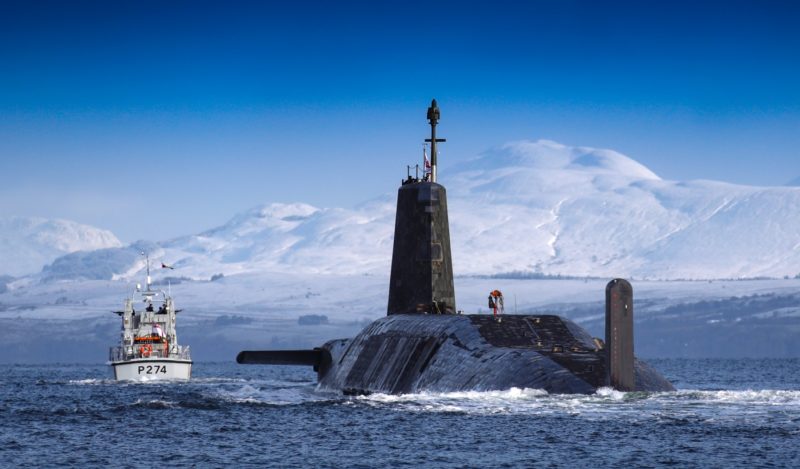
Setting aside your views on supporting or opposing the idea of Scotland breaking away from the union it made with England, Wales and Ireland in the early 1700s – partly to save itself from economic annihilation – it’s worth asking: What would Russia hope to gain today by assisting the Scots in getting a divorce from the rest of their fellow Britons?
The idea that the Russians attempted, via Internet-based influence operations, to sway the result of the 2014 referendum on Scottish independence, has been given credence in the UK Parliament’s Intelligence and Security Committee’s ‘Russia Report’. It also touches on potential interference in the 2016 EU referendum. The report notes: ‘There has been credible open source commentary suggesting that Russia undertook influence campaigns in relation to the Scottish independence referendum in 2014.’ When it comes to the 2016 EU referendum, the report calls for an assessment by the UK Govt of how the Russians may have tried to influence that outcome too.
Why the Russians would seek to influence the 2014 Scottish independence referendum’s outcome can be looked at via the prism of serving the Kremlin’s greater naval and military objectives. The Intelligence and Security Committee report explains: ‘The security threat posed by Russia is difficult for the West to manage as, in our view and that of many others, it appears fundamentally nihilistic. Russia seems to see foreign policy as a zero-sum game: any actions it can take which damage the West are fundamentally good for Russia. It is also seemingly fed by paranoia, believing that Western institutions such as NATO and the EU have a far more aggressive posture towards it than they do in reality. There is also a sense that Russia believes that an undemocratic “might is right’” world order plays to its strengths, which leads it to seek to undermine the Rules Based International Order – whilst nonetheless benefitting from its membership of international political and economic institutions.’
Considered from the naval angle, it is why Russia has intervened in Syria, is currently in Libya trying to swing that nation into the Kremlin’s camp, while still supporting Venezuela and Cuba in the Caribbean. It’s why the Russians are hanging onto the former East Prussia (these days known as the Kaliningrad enclave) – a slice of territory marooned 300 miles from the nearest Russian border and sandwiched between Poland and Lithuania.
For Russia the foreign adventures by its conventional military forces and its cyber warriors’ exploits – including allegedly seeking to break up the UK via the 2014 referendum result – are about boosting global naval power projection and influence, protecting Mother Russia and undermining geostrategic opponents.
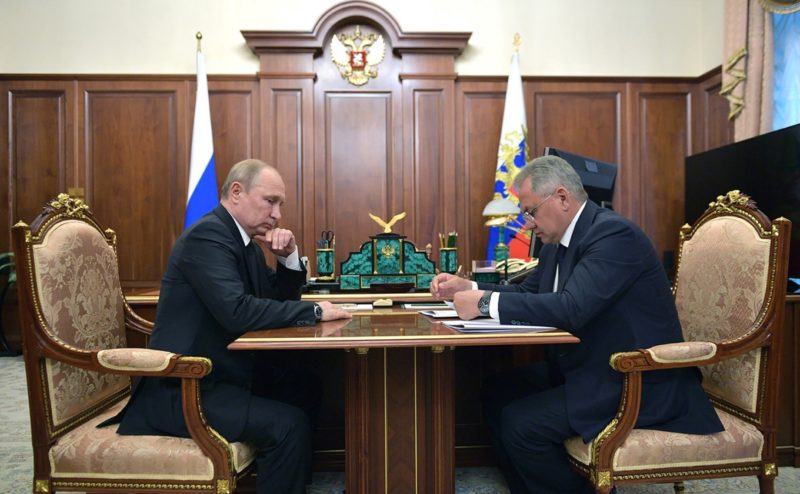
FOR VLADIMIR PUTIN MARITIME
MIGHT IS THE RIGHT COURSE
The naval dynamic behind what the Russians are up to is often overlooked by the non-specialist media in the West, but it is a major element of Putin’s world vision. For the Russian Navy is regarded as the standard bearer of the nation’s claim to being global power (and not just via the sheer world-ending destructive power of its ballistic missile submarines).
In Syria access to the Tartus naval support facility gives Russia a vital strategic base in the eastern Mediterranean. It is used to protect Russia’s southern flank and guarantees access to and from the Med for its Black Sea Fleet (BSF), especially its conventionally-powered missile-firing submarines. Tartus also supports long-range deployments by Russia’s Northern Fleet strike units.
In Libya, securing the rebel General Khalifa Haftar as leader of at least a breakaway portion of the country would guarantee a return to naval anchorages and support facilities the Russians used during the Cold War (but which in recent times have been denied them). When it needed to discuss future strategy with Haftar in 2017 the Kremlin ordered the aircraft carrier RFS Admiral Kuznetsov to loiter off the shores of North Africa. This enabled Haftar to come aboard for a tele-conference with the Russian defence minister.
Similarly, Russia still wants operating bases for its warships in the Caribbean and that’s why both Cuba and Venezuela are key allies against the West. A 2019 circumnavigation of the globe by the new nuclear weapons-capable frigate RFS Admiral Gorshkov – named after the man who made the Soviet Navy great – included a visit to Havana.
From Kaliningrad – home to a major naval base and dockyard – the Russians can seek to dominate the southern Baltic, especially as they have based nuclear-capable Iskander-M missiles batteries in the enclave. They will never give up that former home of Prussian kings.
Russia is only mirroring what Western navies do anyway when it comes to naval bases beyond its main homeland territory. France and UK have bases in the Middle East and the Americans too, plus they also have access to support facilities in Asia-Indo-Pacific. The aim of both Russia and the West is, after all, to make friends and influence people, enable navies to stay on station in strategically vital parts of the world, all while safeguarding sea trade chokepoints and access to natural resources. The flipside is that they can threaten an opponent’s strategic position if they so wish. The Chinese are at the same naval ‘great game’ too, with a base in the Horn of Africa and one allegedly being developed in Pakistan, plus exert business control of commercial ports in the West and elsewhere.
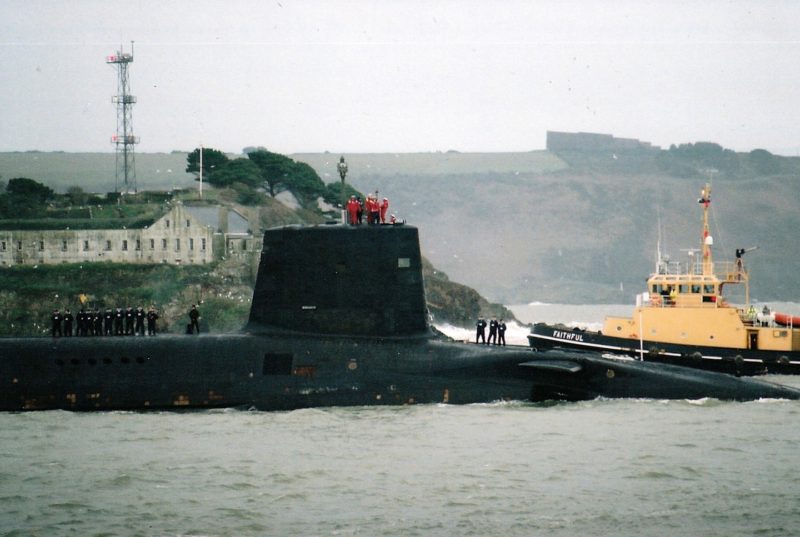
ELIMINATING THE UK
NUCLEAR DETERRENT
Turning the focus back to Scotland, the Russians do regard the UK as a potential weak point in NATO, partly due to the threat of the Scots departing the Union. If such a thing were to happen it would offer the benefit of undermining the national strategic deterrent and NATO. The Scottish National Party (SNP) government in Edinburgh is determined to evict Trident nuclear missile submarines (SSBNs) from the Clyde once it breaks Scotland away.
That event would also potentially further disrupt operations by the Royal Navy’s attack boats (SSNs), for they are now all based in Scotland too. When he was Prime Minister David Cameron refused to openly consider a plan for relocating the Trident boats and the SSNs elsewhere in the UK, for fear of undermining the Union. In that way he guaranteed that, should the SNP government achieve its objective of independence, there will be even greater disruption as the UK Govts flails around for somewhere to base the submarines.
It would not be as simple as ordering them to sail for Devonport, which is no longer an operating base for submarines, despite refitting them in the co-located dockyard. A massive amount of infrastructure would need to be created to replicate what is currently at Faslane and Coulport in Scotland. It might be such a tall order that the UK’s at-sea deterrent force ends up decommissioned entirely.
Cameron’s blinkered mindset likely only encouraged the Russians to try and influence the 2014 referendum result in favour of independence. Meanwhile, when it comes to their own strategic defence bases the Russians always have a Plan B and are ruthless in enacting it. They would never gamble with the future of an essential military /naval centre – it’s the reason they annexed the Crimea in 2014, in order to secure their naval bastion at Sevastopol along with facilities at other locations in the peninsula.
Another big result for the Russians with Scotland departing the Union would be disrupting the UK’s ability to construct warships. While the UK once had the ability to build warships and also support them at several sites, in recent times it has not only sent all its submarines to be based in Scotland but concentrated its naval shipbuilding on the Clyde and at Rosyth, after closing yards in England. There are naval yards in England but they conduct refits and fleet maintenance not warship construction. While Barrow-in-Furness builds submarines it is no longer in the surface vessel game.
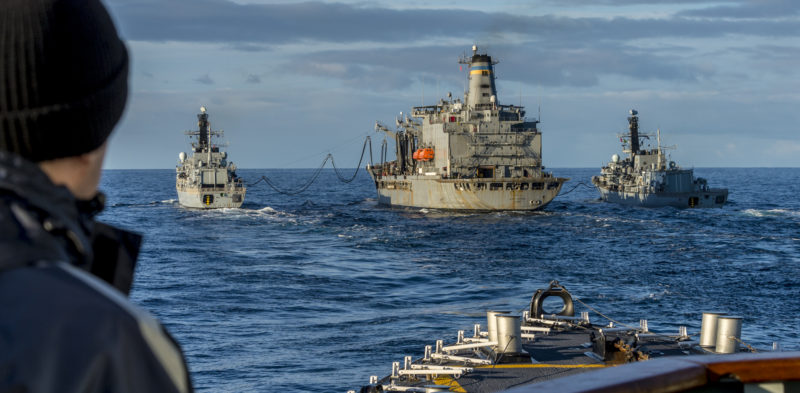

DAMAGING NATO A KEY AIM
AS RUSSIA’S NAVY REGENERATES
Meanwhile, it’s fashionable in certain circles in the West – often from people still stuck in the 1990s ‘Peace Dividend’ mindset – to deride Russia’s defence industrial base and its navy. That is a major error. The Russians have built and commissioned more new submarines than the UK – or any other European NATO fleet – in recent years. They are formidable and well-armed, both the new conventional and nuclear-powered boats.
Russia is also constructing new frigates at least as fast as the UK. It has commissioned a whole load of corvettes that are well armed. These have, along with conventional missile-armed submarines, been used in action during the war in Syria to shape events in Russia’s favour. The Russians are also reconstructing and enhancing some of their older firepower naval platforms, such as the Oscar II Class submarines and major surface warships.
With a potentially train-wreck Integrated Defence Review looming amid continuing hesitancy about naval ship building strategy, it is the UK that is more at risk of imploding than Russia when it comes to its defence industrial base. It is the UK that also seems on the brink of losing even more of its ability to project power and influence world events to safeguard itself and allies.
Whole capabilities may soon vanish with a swing of the Boris Johnson/Dominic Cummings axe. If recent reports are to be believed, a massive act of self-harm is about to be unleashed that will disembowel what’s left of the Royal Navy and Royal Marines. The axe will fall just as these forces are reshaping themselves and gearing up to take on the rising threats posed not only by Russia but also China. It will be a massive own goal by the Johnson government and a disaster for the UK.
Of course, there are those in the UK who, either out of sheer ignorance of modern Defence strategy or an inveterate hatred of Britain even aspiring to be a major military power, who scoff at the idea of Russians even worrying about the UK’s navy.
But the Russians do, just as they did during the Cold War. The UK’s navy remains one of NATO’s cornerstones, even in its much-reduced state. Britain is a superb support and training base for the US Navy and NATO. It is also perfectly placed close to the main exit points for Russia’s primary naval forces – based in the Arctic in and around the Kola Peninsula – to block them when they wish to access the world. Britain has not capitalised on all this since the end of the Cold War 30 years ago.
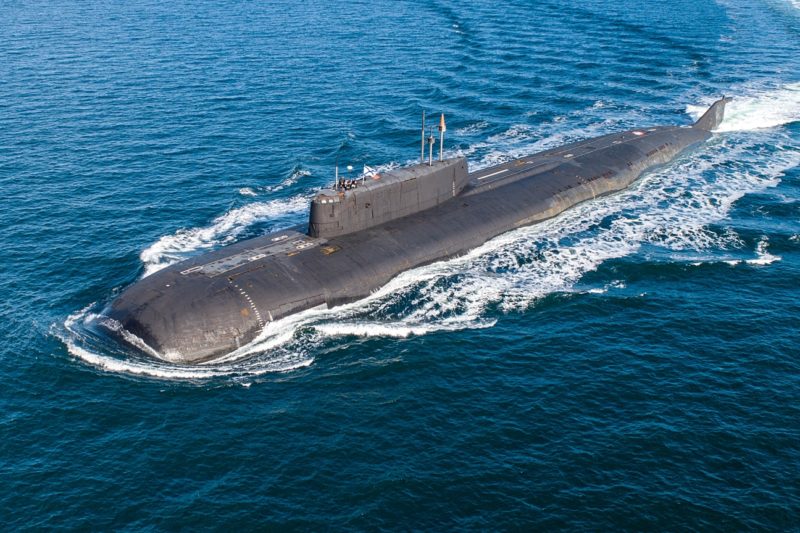
BRITAIN ‘PLAYING CATCH UP’
ON THE RUSSIAN THREAT
The ‘Russia Report’ describes Russia’s aims as ‘relatively limited’ but adds that ‘it wishes to be seen as a resurgent “great power” – in particular, dominating the countries of the former USSR – and to ensure that the privileged position of its leadership clique is not damaged.’
At the end of the day the Russians loathe the success of NATO and anything that undermines an Alliance member state is great as far as they are concerned. They seek to disrupt their foes around the globe by using hybrid warfare – which includes attempts to interfere in national elections or referendums – so totally devaluing the idea of a functioning liberal democracy. That in turn also weakens those opponents socially, economically, militarily and diplomatically.
The ‘Russia Report’ judges that past UK governments have ‘badly underestimated the response required to the Russian threat’ and that today Britain ‘is still playing catch up.’
That is true of not only of national security but also Defence strategy, such as it is.
Looking across the piece – whether considering the Russian state’s regenerated hard power military muscle at sea, or its highly effective use of cyber warfare and fake news – its defence doctrine and foreign policy seems co-ordinated and effective in a fashion the UK is nowhere near handling. The Johnson-Cummings defence review may start the revolution in making that happen, or it may well be bungled and so a catastrophic sequel to the terrible 2010 review that caused such deep harm. That too will delight the Kremlin and especially any moves to get rid of – or put into mothballs – the new aircraft carriers, which, like Royal Navy attack submarines, the Russians envy and are worried about.
UK GOVT DEFENCE CUTS
COULD SERVE RUSSIAN AIMS
There have been a series of defence reviews since the end of the Cold War that have cumulatively left the UK military a shadow of its former self. Important elements of conventional deterrence have been cut back too much – not least intelligence-gathering surface vessels, anti-submarine warships and the RN’s own nuclear-powered attack submarine force.
The Russians have, meanwhile, pursued a programme of investing heavily in such assets. They have developed a new generations of spy ships and special operations submarines, among other things, that are on the cutting edge of their global strategy, which naturally includes taking advantage of a weakened UK.
It is worth pondering what the current Chancellor of Exchequer thinks as he demands a five per cent cut in Defence and other elements of Govt spending to try and cope with the effects of the COVID-19 pandemic. Rishi Sunak is surely all too aware of the undersea threat emanating from Russia?
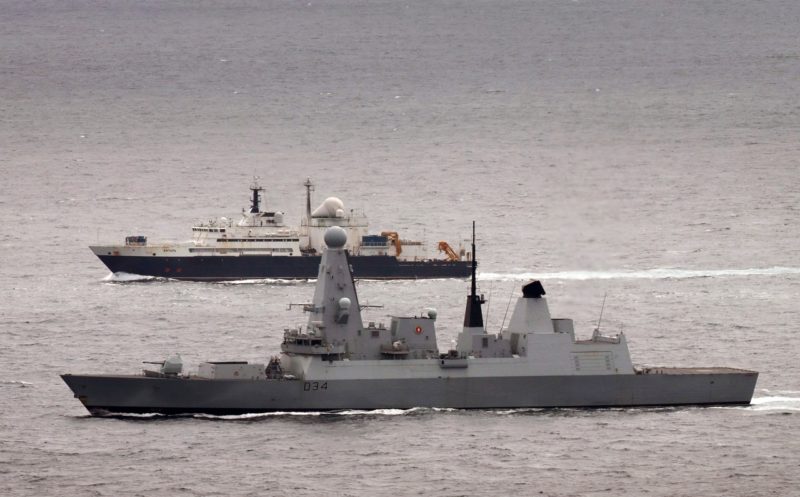
WILL TREASURY CHIEF HEED HIS OWN
RUSSIAN NAVAL THREAT WARNINGS?
In a late 2017 report for the Policy Exchange think-tank (when he was but a rising star as an MP) Sunak wrote a report on the potential Russian threat to the UK’s undersea cables (including the Internet).
Mr Sunak noted in his report: ‘Russia is investing significantly in its naval capacity and plans to have the world’s second largest navy by 2027. In addition to traditional submarines, this investment includes Yantar Class intelligence ships and auxiliary submarines, both of which are specifically able to disrupt undersea cable infrastructure. Russia is increasingly willing to aggressively utilise its naval capability. Examples of this are clear in UK, US, Finland, Sweden, Mediterranean Sea and in the GIUK Gap (the waters between Greenland, Iceland and the north of the UK).’
With the publication of the ‘Russia Report’ reinforcing this perspective – and outlining the urgency of dealing with the threat from the Kremlin – Mr Sunak must fully comprehend that a response to it cannot be provided on the cheap (regardless of COVID-19 pandemic stimulus packages for industry and other elements of government spending).
The ‘Russia Reports’ adds extra clarity to the view of the Russian threat the Chancellor held just three years ago when he published his own report. Investment in both Security and Defence capabilities is not a matter of choice but a necessity. It must include a commensurate expansion of (and upgrade in) naval capabilities. The UK Govt must also work harder to repair schisms in the UK that malign actors such as Russia seek to exploit.


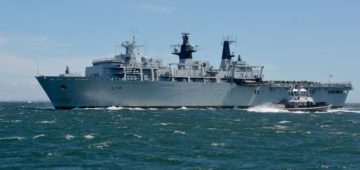


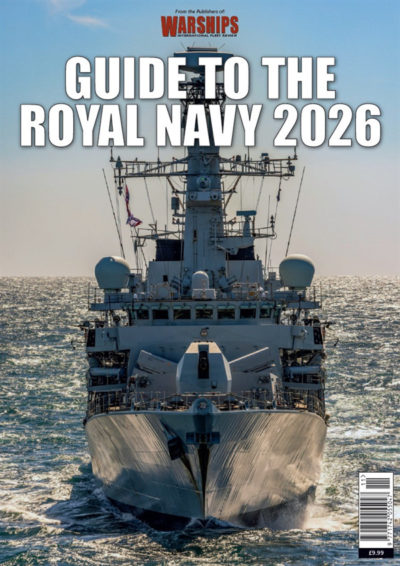
Comments
Sorry, comments are closed for this item